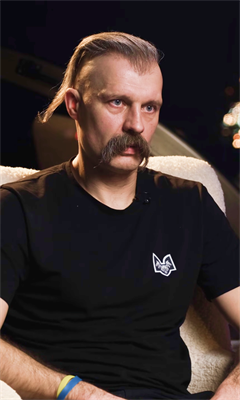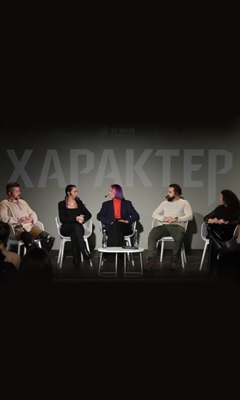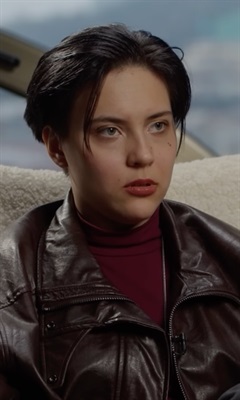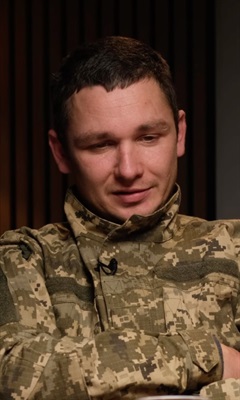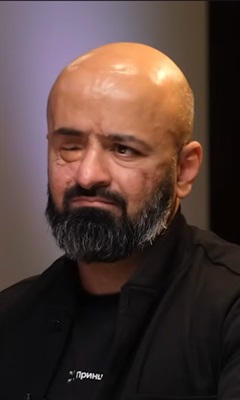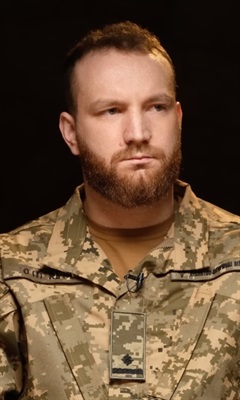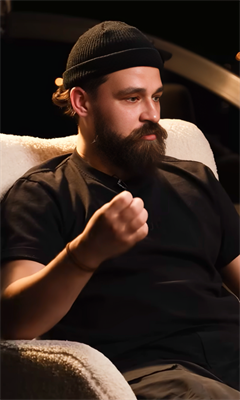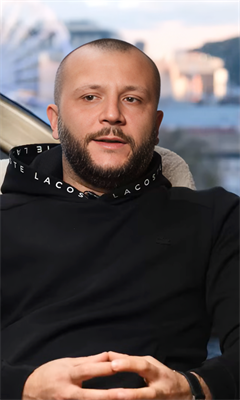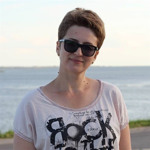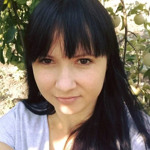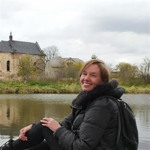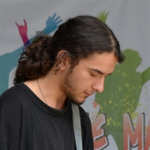My brother died in my arms. His body was left in the apartment, as we couldn’t bury him
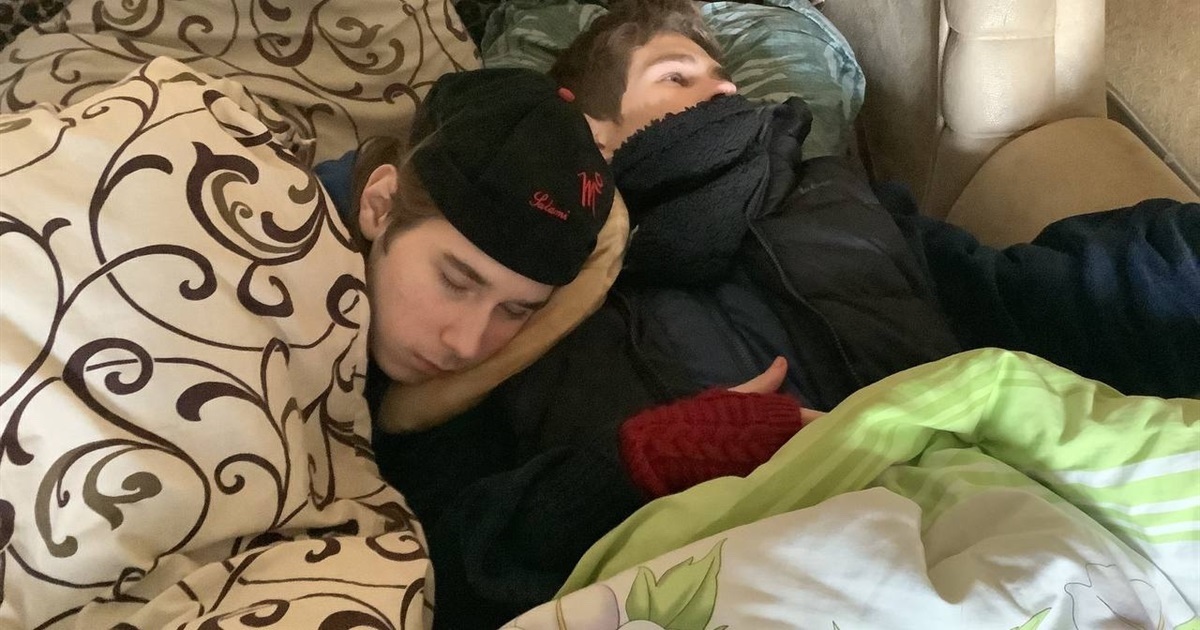
When we decided to flee, it was already too late
The second of March is the date Artem calls "the beginning of the suffering and torment of his family". That day, the boy woke up at 5 a.m. when his house was shelled with "Grads".
“I opened my eyes at once, and saw my brother and my mother. They shouted, telling me to run to the hallway. That same day, our Internet and mobile signal were cut off, then, there was no water and electricity. Our gas was turned off soon after. Mariupol has nothing of it even today.”
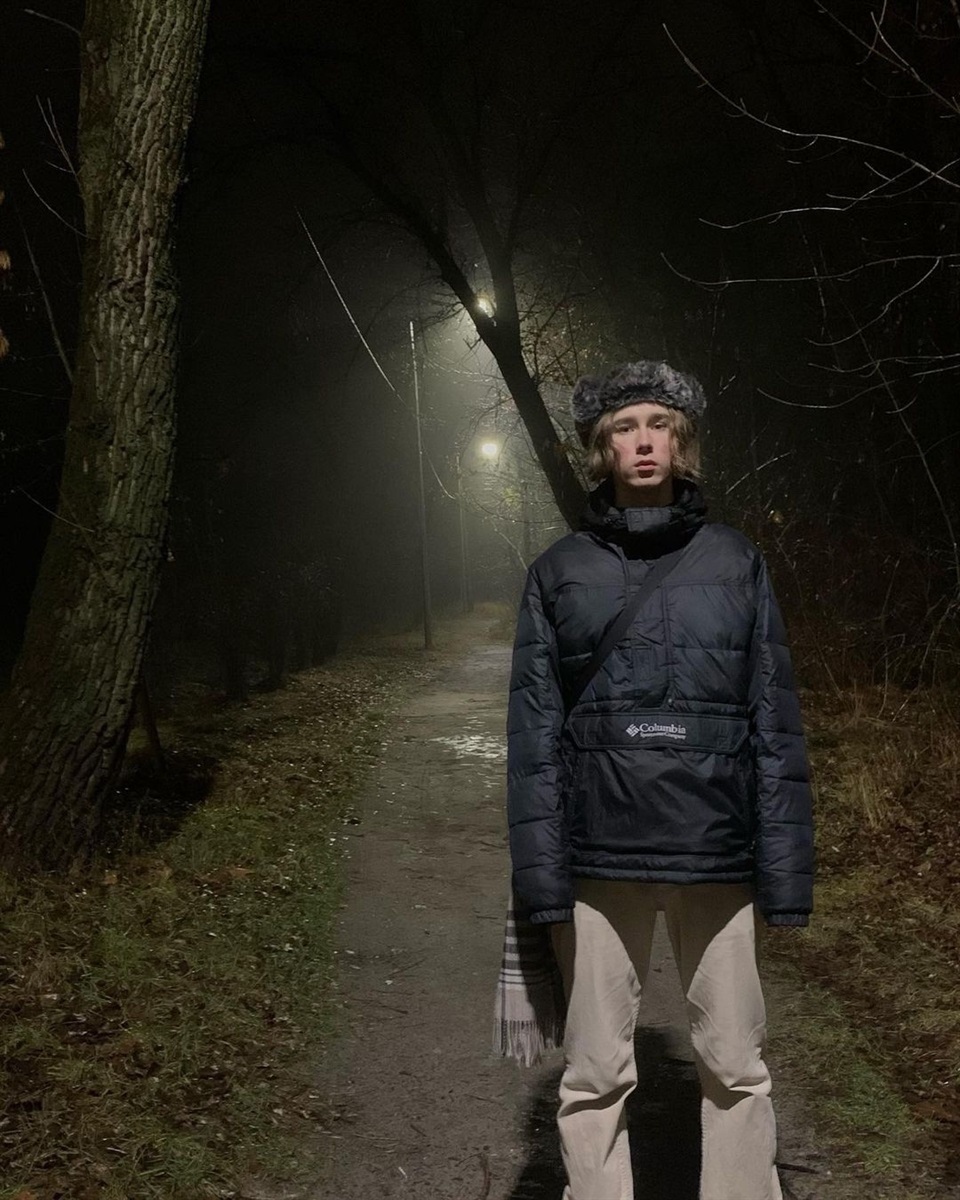 Artem
Artem
According to Artem, that was the day they realized that they had to leave the city. But it was too late.
“People who owned a car could still leave at their own risk, as the explosions were going on constantly. But walking from Mariupol’s left bank to the right one was guaranteed death. Therefore, we packed our belongings and waited for the evacuation, which had been promised to us from the second of March onwards. Jumping ahead: the evacuation did not take place.”
Life from dusk till dawn
Artem lived with his family from dawn till dusk: they went to bed at around 6 p.m. and woke up at 4-5 a.m. But it couldn’t be called “sleep” – they woke up periodically from explosions. The boy recalls that due to the absence of heating and the broken windows in the apartment, the temperature was 8-10°C (46-50°F). They wore winter jackets indoors and slept wearing them. On the 11th of March, a shell fragment flew through the window, and it became even colder.
“The fragment flew from the bombing of the opposing house ... Ukrainian troops approached our house, and street fighting began. Our area - Morskoi, Chaika, Meotida Boulevards - became the centre of active combats. Throughout these days the fighting continued near our house. On the 15th of March, another pack of shells flew into the opposing house, after which our windows could not take it. They were fully destroyed along with the balcony.”
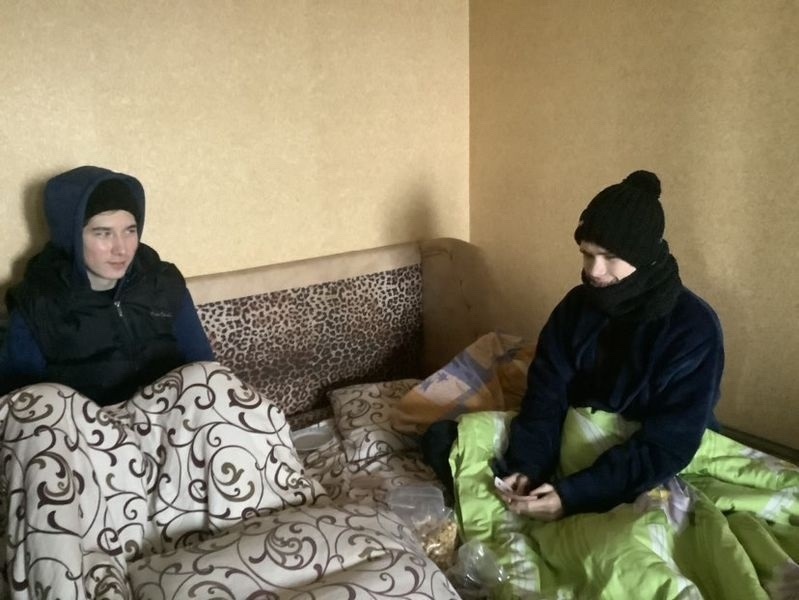 Artem and his brother, Maksym
Artem and his brother, Maksym
On the same day, Artem, his mother and his younger brother moved to the basement of their house. It was warm there, whilst the temperature in the apartment dropped to -11 °C (12°F).
“Sometimes, we would leave the house to cook food on an open fire or go down to the well for water. But going for water equalled death. On the descent to the sea, near the well of the Naydenovka village, Maksym and I saw corpses”.
I lost 25 kg from hunger
Mariupol was besieged since the very first day of the full-scale invasion. Accordingly, food, water, medicines, and other goods ceased to flow into the city.

“Rapidly, there came starvation, followed by freezing. Thus, the elderly were the first to die in our house. The cold kept them from decomposing. I know that an elderly couple froze to death in the basement of the neighbouring block... We ate all kinds of canned food, honey, and vitamins. When it was quieter, we cooked porridge on an open fire. Sometimes my mother made pita bread from flour and water. We lost a lot of weight due to hunger. For example, I used to weigh 72 kg, but due to hunger and stress, my weight dropped to 47, so I lost 25 kg. No humanitarian aid. No evacuation. People suffered and died. It goes on like this to this day.”
My brother died in my arms
On the 17th of March, Russian troops moved closer and directly shelled his house with Grads. It became perilous to leave the basement, even to quickly cook some food on an open fire.
“A tragedy occurred in our family the next day, on the 18th of March. At about one in the afternoon, my mother and brother (Maksym would have turned 17 on the 5th of April) decided to go upstairs for food and use the bathroom. I stayed in the basement - to be honest, I was too lazy to put on my shoes. And just a couple of minutes later I heard two explosions, which I ignored at first because I heard about over 100 explosions per day. But someone in the basement shouted something about the 6th floor, which was the floor we lived on.”
“I saw a pool of blood on the fifth floor, and on ours - my brother. He was shocked and covered in blood. Mom was screaming for help. I was trying to close my brother's wound. I won't go into details, it's tough for me to talk about it. It was 13:30 when my brother died in my arms. His body was left in the apartment; we could not bury him. We are trying to find out at least something about him. According to rumours, my brother was buried in the courtyard of our house. But was he? We don't know."
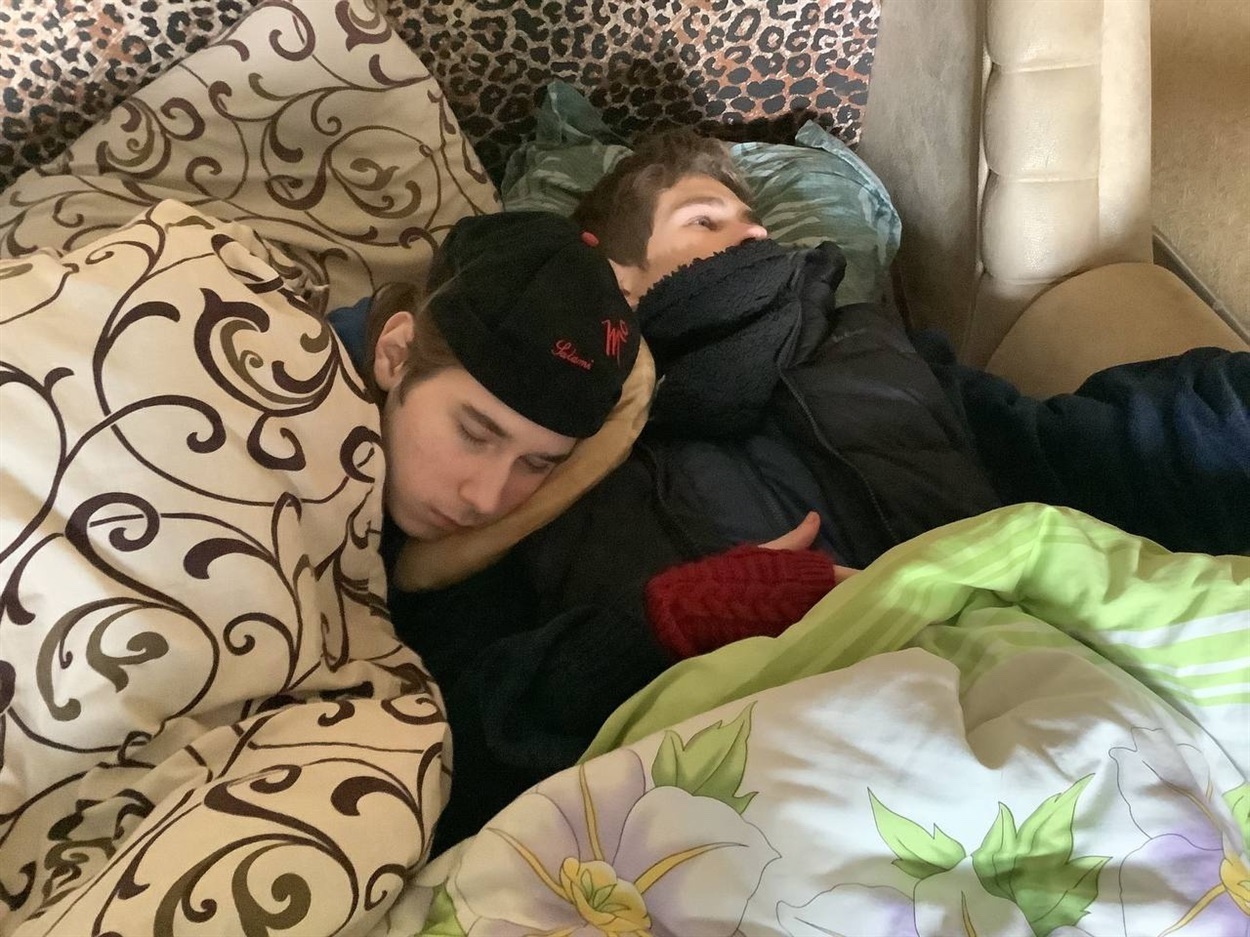 Artem and his brother Maksym
Artem and his brother Maksym
For the next day and a half, Artem and his mother sat in the basement, shocked and covered in blood. They didn’t know what to do next.
“On the 19th of March, the troops of the “DNR” [“Donetsk People’s Republic” - temporarily occupied territory of the Donetsk region] or the Russian Federation entered our house - I don’t really distinguish between them. The soldiers said they would be mopping up and breaking into apartments. After that, our house became the front of the fire, and the Ukrainian military was in the opposing house. We heard terrifying explosions all night long. Shooting from one house into another ...”
From Mariupol, you can go either to Russia or “DNR”. They don’t let you go to Ukraine
On the morning of the 20th of March, they decided they had to flee and save their lives. Artem says that perhaps they would not have dared to take such a desperate step if the neighbours from their block did not start evacuating on their own.
“We grabbed the belongings, collected when it all had started, and ran, fearing death on our way. After all, the battle was in full swing. We were moving towards the area that had already been invaded, towards the abandoned children's camp "Orlenok". There was no point in running in the opposite direction, towards the right bank of Mariupol, which was cut off from the left one. The battles were in full swing, and there was a 100% probability of dying. We ran with our bags to the nearest checkpoint; this was in the Lyapino district. On the way, we began to group with other people and move down the slope to the sea. The whole journey was about 7-8 km (4-5 miles), but after losing 25 kg of weight and sitting in the basement, this journey was unbearably difficult for us. It was only on pure adrenaline that we managed to get to the checkpoint.”
At the checkpoint, the desperate residents of Mariupol, including Artem and his mother, were approached by the “DNR” military. They carefully checked everyone's documents. According to Artem, they examined men’s bodies, looking for traces of recoil from a Kalashnikov assault rifle.
“From the checkpoint, we were taken to Novoazovsk. Then, from Novoazovsk to Starobeshevo. We lived in the auditorium and slept on the floor and seats. After all those days spent in the basement under shelling, these conditions were unbelievably comfortable".
Artem and his mother stayed in Starobeshevo for four days. Here, the officials registered people, recorded all their data, photographed them, took their fingerprints and then entered all this into the DNR database.
“After the registration, we were given a certificate with which we could enter Russia. We had a choice - to stay in the "DNR" or go to Russia. The third option was not given, the option of going back to Ukraine was prohibited. We went to Rostov through Uspensky customs. Then, we went to our friends in Moscow, and after three days of rest, we went to Finland. Getting to Helsinki was difficult. At the Russian customs, FSB officers interrogated us and examined our phones. One interesting thing was that the letter Z was shaved on the dogs that look for drugs.
Now, Artem and his mother live in Helsinki, the most favourable city for life, according to one of the ratings. Here is the beginning of a new life for them.



